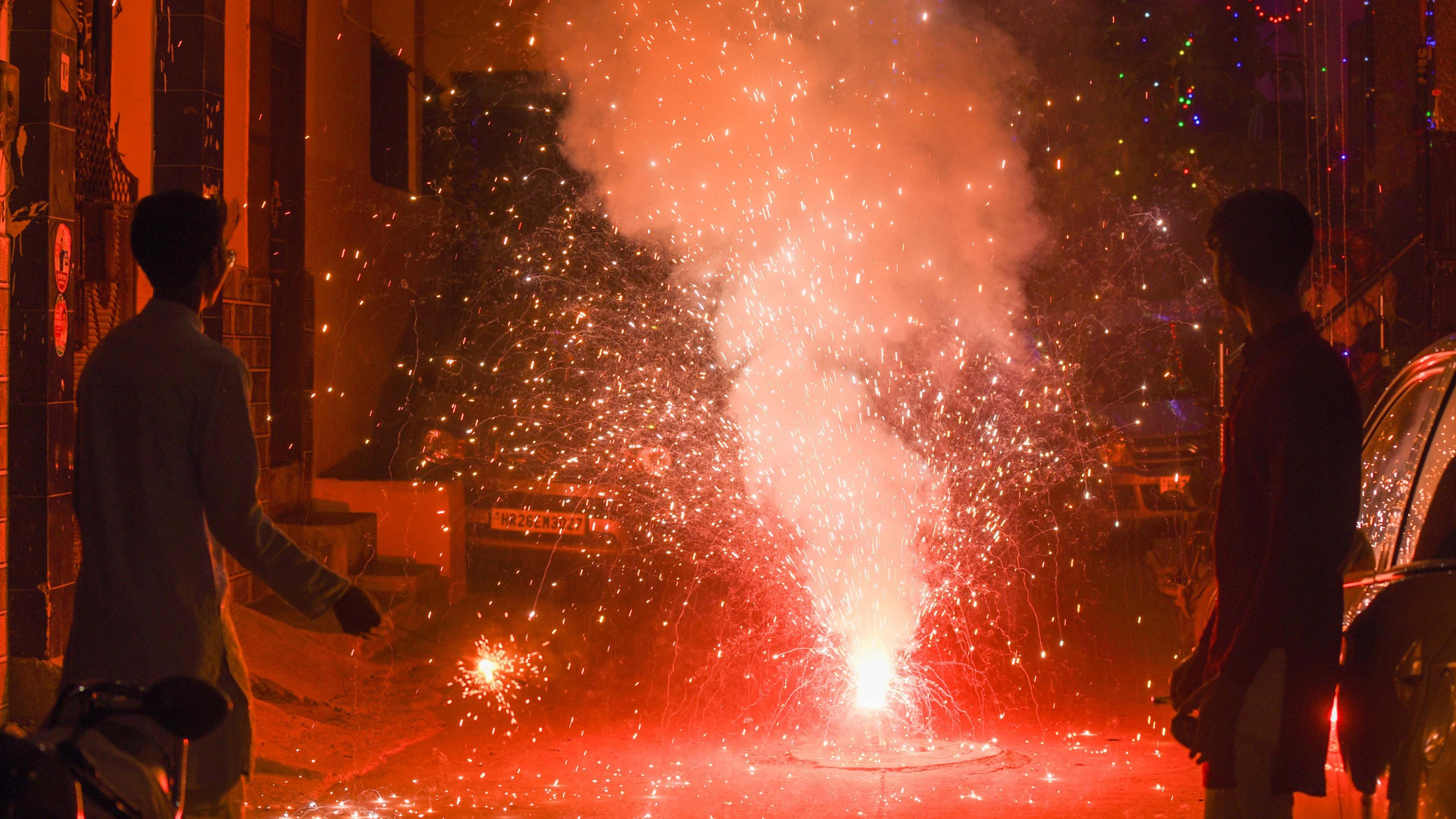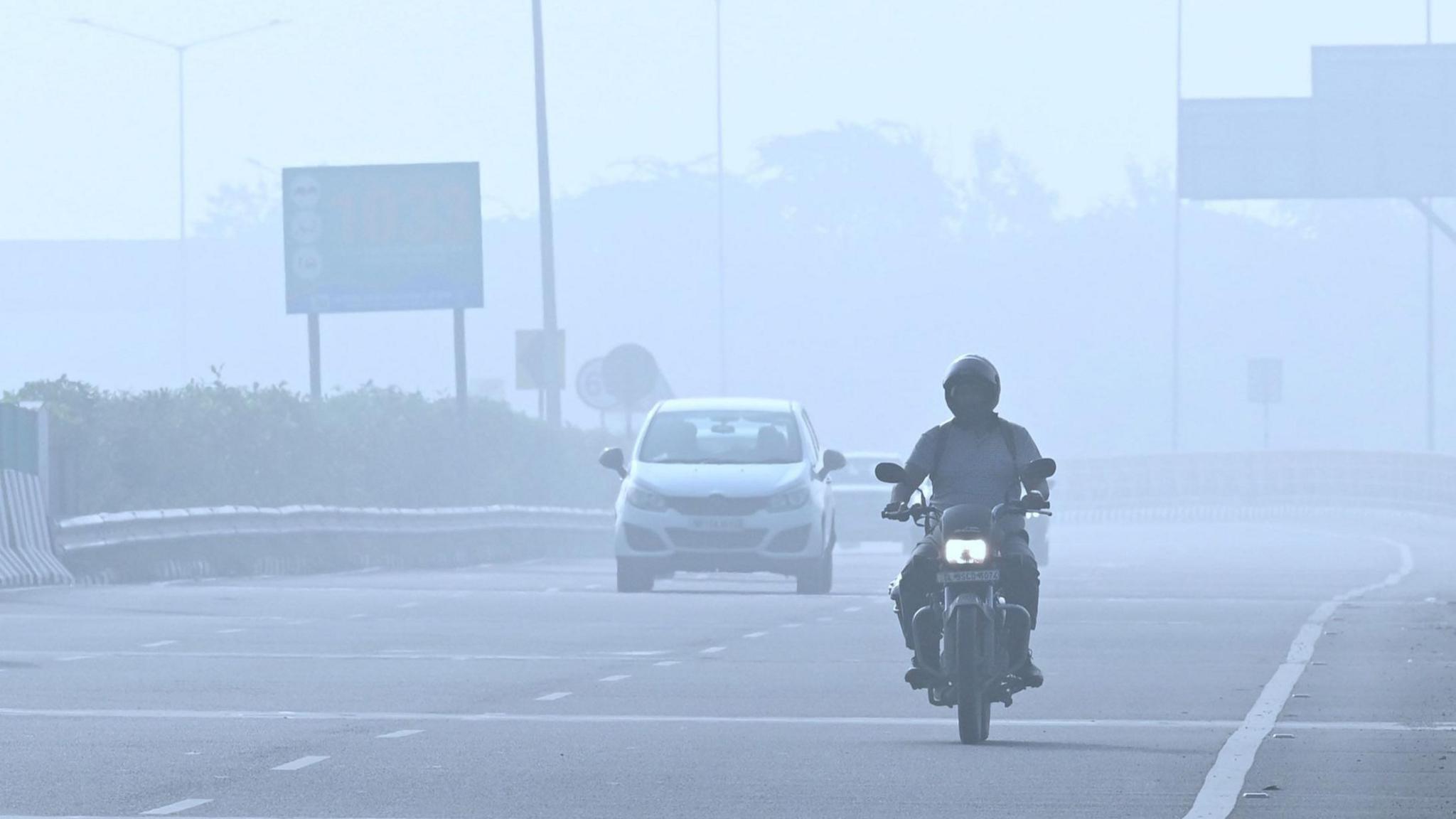India top court allows less-polluting crackers even as Delhi air turns toxic

Experts say firecrackers significantly contribute to Delhi's pollution levels during Diwali festival
- Published
India's top court has allowed the sale and bursting of firecrackers believed to be less polluting during the upcoming Diwali festival, even as air quality dips to very poor levels in the capital Delhi.
Crackers have been banned in Delhi since 2020, as they significantly contribute to the air pollution crisis the city faces each year.
The so-called green crackers, which the court allowed on Wednesday, are designed to emit 20-30% less pollutants than traditional ones and generate minimal ash, their makers say.
But critics say that even though less harmful, they still release toxic substances into the air and adversely impact air quality.
The Supreme Court's decision came on a day when air quality in Delhi was 25-to-30 times worse than the safe levels recommended by the World Health Organization.
According to the Central Pollution Control Board's website, most parts of the city on Wednesday morning recorded PM2.5 levels - tiny particulate matter in the air - between 300 and 400.
These fine particles are extremely dangerous - they can penetrate deep into the lungs and pose serious health risks. In some of the worst-hit areas, the levels crossed the 400-mark.
The government's air quality index, external says that when these levels cross 300, they can cause respiratory illnesses in people exposed for long periods. Levels above 400 can affect even healthy individuals and have serious impacts on vulnerable groups such as children, the elderly and those with existing health conditions, it adds.

Air quality levels touched severe category in parts of Delhi on Wednesday morning
Pollution is a recurring crisis that Delhi and many other parts of northern India face every winter.
The air quality worsens due to low wind speed, vehicular emissions and stubble burning in neighbouring states.
And the widespread bursting of celebratory firecrackers during Diwali worsens the situation. Even though there has been a ban on firecrackers for the past five years, implementation on the ground has remained weak.
Residents often complaint of the air being too hazardous to breathe on the morning after Diwali.
Experts say that this year we might see pollution levels worsen, especially now that people are allowed to set off green crackers.
In Wednesday's order, the top court has also given a set of specific guidelines on when and how these crackers could be sold and used, external, according to legal news website LiveLaw.
The court said the sale would be allowed between Saturday and Monday from authorised shops. It also specified that the firecrackers could only be set off in designated areas "one day before and on the Diwali festival". The court fixed a three-hour window for its use, one hour in the morning and two hours at night.
The decision has sparked mixed reactions on social media.
Some have welcomed the move, saying it allows them to fully celebrate the religious festival.
Others, however, argue that enforcement of firecracker regulations has already been weak and permitting them could lead to a further deterioration in the city's air quality.
Meanwhile, in an effort to combat rising pollution levels, the Delhi government on Tuesday implemented the Graded Response Action Plan (GRAP) which bans all activities involving the use of coal and firewood, as well as the use of diesel generators for non-emergency services.
Follow BBC News India on Instagram, external, YouTube,, external X, external and Facebook, external.